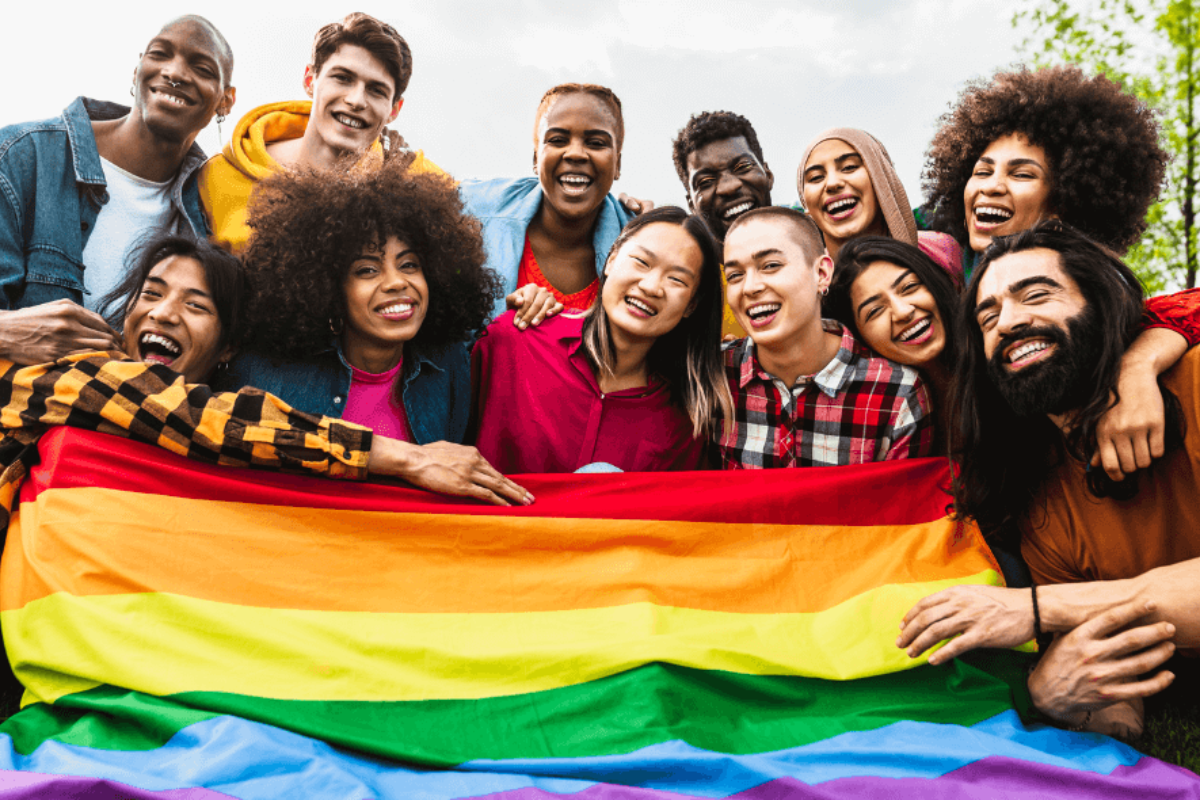
Celebrating 2SLGBTQIA+ Identity: Creating Inclusive and Affirming Spaces
![]() Amanda Bracaj
Amanda Bracaj
![]() July 31, 2024
July 31, 2024
The term 2SLGBTQIA+ encompasses a diverse array of identities, each with its own unique history and significance. This acronym stands for Two-Spirit, Lesbian, Gay, Bisexual, Transgender, Queer/Questioning, Intersex, and Asexual, with the "+" representing the inclusion of other identities that fall outside these categories. Each component of the acronym highlights different aspects of sexual orientation, gender identity, and expression, reflecting the rich tapestry of human diversity. Historically, the visibility and recognition of 2SLGBTQIA+ identities have evolved significantly, though challenges and discrimination persist. For instance, Two-Spirit people, a term used by some Indigenous cultures to describe a range of gender identities, have faced unique struggles within both their communities and broader society. Acknowledging these historical and current contexts helps us understand the ongoing need for inclusive practices and affirming spaces. Creating inclusive environments is vital for the well-being of 2SLGBTQIA+ individuals, impacting their mental health and overall quality of life. Safe spaces allow individuals to express their identities without fear of judgement or discrimination, fostering a sense of belonging and acceptance. The psychological benefits of inclusivity are profound; individuals who feel accepted are less likely to experience anxiety, depression, or other mental health issues. Furthermore, affirming environments contribute to stronger community bonds, providing support networks that are essential for personal and collective growth. Inclusivity in various settings, whether at work, in educational institutions, or within public spaces, ensures that everyone can thrive. By actively working to eliminate discrimination and promote acceptance, we can create a more equitable and supportive society for all. Implementing inclusive language is a fundamental step towards creating welcoming environments. Using correct pronouns and avoiding assumptions about gender helps to affirm individuals' identities and shows respect. Additionally, organisations can establish non-discrimination policies and provide sensitivity training to educate staff and members about the importance of inclusivity. Representation plays a crucial role in affirming identities; diverse visibility in media, workplaces, and public spaces reinforces the message that everyone deserves to be seen and valued. Ensuring that policies and practices are regularly reviewed and updated to reflect the evolving understanding of 2SLGBTQIA+ issues is also essential. Creating a culture of openness and continuous learning helps maintain an environment where everyone feels supported and valued. In the workplace, adopting best practices for inclusivity includes implementing policies that support diverse identities, creating support groups, and ensuring visibility of 2SLGBTQIA+ issues. For educational settings, inclusive education involves integrating diverse perspectives into the curriculum and providing support for students of all identities. Schools and universities should foster environments where students feel safe and valued, which can enhance their academic performance and personal development. Public spaces also play a significant role in inclusivity; accessible signage, inclusive design, and visible symbols of support can make these spaces welcoming for everyone. Ensuring that these environments are free from discrimination and supportive of all identities contributes to a more equitable society. By addressing these aspects comprehensively, we can foster spaces that genuinely affirm and support the 2SLGBTQIA+ community. Celebrations and events, such as Pride festivals, play a crucial role in fostering visibility and support for the 2SLGBTQIA+ community. These events not only provide a platform for individuals to express their identities but also serve as important opportunities for community building and advocacy. Collaborating with 2SLGBTQIA+ organisations and initiatives can enhance efforts to create inclusive spaces and provide support. Partnerships with community groups can lead to meaningful changes and amplify the voices of those directly affected by issues of discrimination and marginalisation. Ongoing education and self-reflection are also key to maintaining an inclusive environment. By continually learning about and reflecting on 2SLGBTQIA+ issues, individuals and organisations can adapt and improve their practices to better support the community. Allies play a vital role in supporting and advocating for the 2SLGBTQIA+ community. Effective allyship involves taking concrete actions to support individuals, such as standing up against discrimination and amplifying the voices of those affected. Listening to and learning from 2SLGBTQIA+ individuals provides valuable insights into their experiences and needs. Allies should also be proactive in challenging discriminatory behaviour and working to create more inclusive environments. By taking these steps, allies can help build a more supportive and equitable society. Being an ally is not a one-time effort but a continuous process of learning, advocating, and supporting. Through these actions, allies contribute to a culture of respect and inclusivity that benefits everyone.Understanding 2SLGBTQIA+ Identity
The Importance of Inclusivity and Affirmation
Strategies for Creating Inclusive Spaces
Affirming Practices in Various Environments
Celebrating and Supporting 2SLGBTQIA+ Identity
The Role of Allies

Recent Articles
Exploring Holistic Wellness: Integrating Mind, Body, and Energy Healing
Understanding Holistic Wellnes...
![]() Aug 05, 2024
Aug 05, 2024
The Power of Trauma-Informed Care: Transforming Lives with Compassion and Understanding
Understanding Trauma-Informed ...
![]() Aug 04, 2024
Aug 04, 2024
Navigating Mental Health Conditions: A Comprehensive Guide for Support and Healing
Understanding Mental Health Co...
![]() Aug 03, 2024
Aug 03, 2024
Understanding and Supporting Neurodivergent Individuals: Embracing Unique Perspectives
Embracing NeurodiversityNeurod...
![]() Aug 02, 2024
Aug 02, 2024
Healing from Substance Use Disorders: Compassionate Strategies for Recovery
Understanding Substance Use Di...
![]() Aug 01, 2024
Aug 01, 2024
Honouring Indigenous Wisdom: Integrating Traditional Knowledge into Modern Healing Practices
In recent years, there has bee...
![]() Jul 30, 2024
Jul 30, 2024
Addressing Intersectional Discrimination: Building Empathy and Understanding in Therapy
The Complexity of Intersection...
![]() Jul 29, 2024
Jul 29, 2024
Overcoming Stigma in Schizophrenia: Effective Therapies and Support Systems
Understanding Schizophrenia an...
![]() Jul 28, 2024
Jul 28, 2024
Navigating Grief and Bereavement: Holistic Approaches to Healing from Loss
Understanding Grief and Bereav...
![]() Jul 27, 2024
Jul 27, 2024
Healing from PTSD and C-PTSD: Tailoring Therapies for Comprehensive Recovery
Understanding PTSD and C-PTSDP...
![]() Jul 26, 2024
Jul 26, 2024
Exploring the OCD Spectrum: Understanding and Treating Various Subtypes
Obsessive-Compulsive Disorder ...
![]() Jul 25, 2024
Jul 25, 2024
ADHD and Autism Spectrum Disorders: Recognising and Supporting Diverse Needs
Understanding ADHD and Autism ...
![]() Jul 24, 2024
Jul 24, 2024
The Role of Practical Compassion in Holistic Healing: Enhancing Individual and Collective Wellbeing
Understanding Practical Compas...
![]() Jul 23, 2024
Jul 23, 2024
Understanding the Role of a Mental Health Counsellor
The True Standard of Quality H...
![]() Jul 22, 2024
Jul 22, 2024
